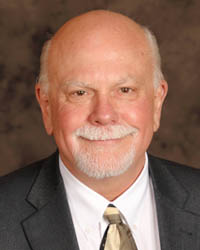

Don’t Wait to Report Memory Problems
We’ve come a long way in our understanding of Alzheimer’s disease since the discovery of the condition in the early 1900s, and we’re learning more every day. There are currently almost 100 disease-modifying treatments in clinical trials. However, we still have a way to go when it comes to how people view the condition. Unfortunately, there still exists some stigma around Alzheimer’s that might prevent people from getting the care they need.
The occasional lapse in memory—like forgetting where the car keys are—happens to everyone occasionally. But these instances of slipping cognition may weigh heavier on someone who has a history of Alzheimer’s disease in their family. They may even be more hesitant than someone without a family history of dementia to seek care for their cognitive issues. But experts urge people to report memory problems to their doctor as soon as possible.
Only 25% of older adults experiencing memory problems report their symptoms to their primary care provider. A sense of fear or denial may cause some people to mask their symptoms, but it’s best to bring these concerns to the attention of medical professionals. Family members may also downplay memory problems or personality changes, chalking them up to anxiety, irritability, or the regular process of aging. Telling a doctor about these symptoms offers many benefits:
Rule out other conditions. Thyroid problems, depression, sleep disorders and vitamin deficiency can all mimic the symptoms of Alzheimer’s disease. And if the diagnosis is dementia, it’s important for doctors to identify the type of dementia. Alzheimer’s disease, Lewy body dementia, and frontotemporal dementia all have different causes and treatments.
Plan ahead. After a diagnosis of Alzheimer’s disease, families will want to make sure they have a plan for when the disease progresses. That means having an advance care directive, a healthcare power of attorney, and plans for care support and end-of-life decisions. Families may seek the help of a lawyer to help interpret laws that may vary by state.
Get the best treatment. Delaying diagnosis also means delaying treatment. While there is currently no known cure, lifestyle changes, medication, and memory support strategies can slow the progression of the disease.
Make safe decisions. Without a diagnosis, people with Alzheimer’s may do dangerous activities like driving or providing care for another person. Getting a formal diagnosis will help families and patients understand what precautions to take to keep their loved one safe.
Foster understanding. As with any life-changing illness, there are stages of grief that come with an Alzheimer’s diagnosis. Support groups and education for both the affected person and their families can help them understand the changes to come.
Caring for Memory Issues
As a leading senior care agency, many of our clients experience some form of memory issues. At Right at Home, we are committed to helping families care for loved ones that are living with Alzheimer or showing early symptoms. Our care-professionals are dedicated to continuous education, in-house dementia training, online training courses, and situational responses that apply care with compassion.
The Alzheimer’s Association can provide resources, counselors, classes and other information to help support people and families struggling with Alzheimer’s. There are many ways to get involved in the cure for Alzheimer’s. Often people take part in the "Longest Day" activities – the day with the most light known as the summer solstice. On June 21, people around the world will fight the darkness of Alzheimer’s through a fundraising activity of their choice. My favorite, the Walk to End Alzheimer’s, Is on Saturday, Oct. 28 this year in Oklahoma City.
Right at Home Northwest Oklahoma City has been participating in the Walk to End Alzheimer's and volunteering since we started our care business. Last year I was a member of the Walk Committee 2022, along with a group of other dedicated volunteers. that works year-round to make the Walk a success. I’m very excited about being a part of the Walk and knowing that the resources raised are making an impact on the disease.
If you want to make a difference by getting involved, please reach out to the Oklahoma City Alzheimer’s Association Office.
Your health is important, and that includes your mental health. Pay attention to memory changes that don’t feel right and share these concerns with your doctor. The best options for treating and managing any health condition start with giving priority to recognizing changes and sharing them with your physician.




